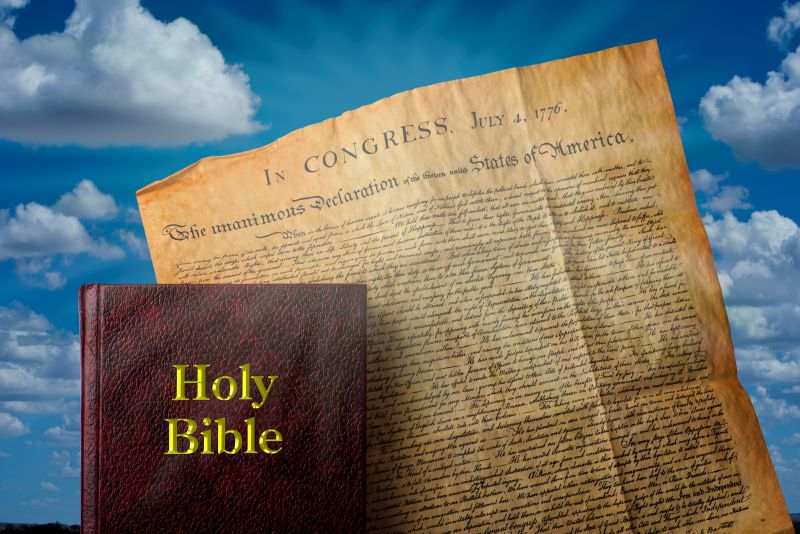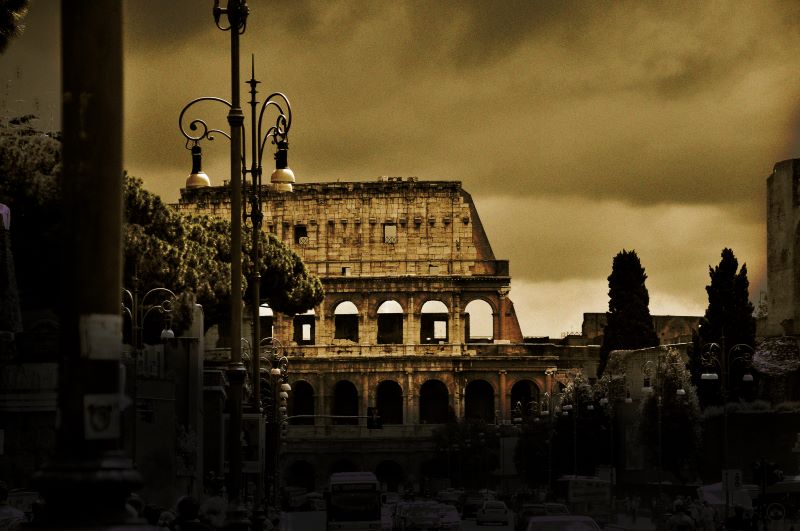What We Can Learn from Ordinary Heroes
Sign up for a six month free
trial of The Stand Magazine!
My husband and I had a conversation last night with our son who is a senior in high school. We asked him if he observed any racism among his classmates. I think we were both surprised at his response.
In his view, many of his fellow students are still affected by a remnant of racism left over from parents and grandparents whose ideology was framed in the Deep South during the 50s, 60s, and even the 70s. He discussed his observation of racism among minorities for reasons he attributed to cultural differences, stereotypes, and, in some cases, unforgiveness.
It was fascinating to hear his perspective, as it was clear that he had observed closely and thought critically about this issue. Multiple close friendships with others outside of his own culture and ethnicity have likely played a part in giving him clarity.
In recent weeks, I learned of a young college student by the name of Joan Trumpauer who, among others, served as a pronounced example of critical thinking in a time when racism was rampant, during the early 1960s.
One summer as a small child, her life changed forever. She and a friend dared each other to walk through the segregated part of town where blacks lived. They noticed as they walked through the neighborhood that its residents quickly disappeared into their houses. “No one spoke to us; no one bothered us,” Trumpauer said in the documentary An Ordinary Hero. “They just made themselves invisible. I think that’s when things really hit me as to how unequal they were and how unfair.”
She listened to the preacher and Sunday school teachers at church and could not understand how those who read the same Bible and heard the same messages could hold to such inconsistent views. They memorized Scriptures about treating others the way they wanted to be treated and sang songs with lyrics about Jesus and how He loved all the little children – red and yellow, black and white, all precious in His sight.
At the tender age of nine or ten, she began to question what she could do to change things. At age 15, she became more determined when she heard that the National Guard had been called to Little Rock, Arkansas, to enforce the law permitting black students to attend school with white students. By the time she reached age 19, her commitment to do something about the racial injustices she observed had permanently solidified.
By the spring of her freshman year at Duke University, she became involved in lunch counter sit-ins. Following through on the tone set by Martin Luther King Jr., who had been active in his role as the leader of the American Civil Rights Movement for a number of years, sit-ins employed non-violent measures to bring national awareness to segregation.
Sit-in participants would simply sit down at a whites-only lunch counter and order. When service was refused, they would sit there quietly waiting to be served. The reactions of onlookers were hostile and sometimes violent. Taking part in a sit-in was a dangerous undertaking for African Americans and white Americans who accompanied them. Some experienced physical harm, and many were arrested.
She knew that she would inevitably become an outcast among her relatives as a result of her views and actions. “But there was an advantage that once you took that fatal step of stepping outside the bounds of acceptability,” she explained, “there was no stepping back. So you could only go forward.”
Lunch counters began integrating as a result of the sit-ins, and many activists, including Trumpauer, joined the Freedom Riders – mixed-race groups who rode interstate buses to challenge illegal segregation. The buses were attacked by violent mobs, set on fire, and some individual riders were beaten severely. They were arrested for trespassing, unlawful assembly, and violating state and local Jim Crow laws.
When one young rider who sat on a train heading to Jackson, Mississippi, was asked by a reporter why [as a white person] he wanted to take part in the rides, he responded:
“I want to help establish the right of all Americans to eat together and to travel together.”
“Why,” asked the reporter, “do you think it’s your responsibility?”
His answer was astounding.
“I think it’s every American’s responsibility,” he said matter-of-factly. “I only think that some are more conscious of their responsibility than others.”
From 1955 to 1968, the Civil Rights Movement brought about an enormous amount of indisputable progress toward racial equality. The Freedom Riders played a significant role in moving it forward. And while many government officials and other leaders considered the riders unwise in their continued determination, they never gave up.
“We were past fear,” said Trumpauer. “We can’t stop. If one person falls, others take their place.”
Trumpauer and many of the riders who refused to post bail when jailed were moved to the Mississippi State Penitentiary in Parchman. Death Row was emptied to clear space for their stay there. And a number of other actions were taken to intimidate them.
Former Freedom Rider Glenda Gaither Davis said, “Even though we came from many different places (we had many different cultures and many different home environments), in some ways we were very much unified because we had a common cause.”
In the end, there were over 430 Freedom Riders, 300 of whom were imprisoned in Mississippi for a time. There, the large group of young men and women from various ethnic, religious, and political backgrounds only became tougher and more committed to their nonviolent, peaceable, loving approach.
Attorney General Robert Kennedy eventually called for the Interstate Commerce Commission to integrate. The ICC’s response wasn’t immediate, but it finally issued an order to remove the signs requiring segregated seating. The “colored only” and “whites only” signs finally came down.
One might say that the Freedom Riders put wheels on the movement started by Martin Luther King Jr. to change a culture through persistent, non-violent means.
Today, we are perhaps more racially divided than we have been in decades. Our views on racial equality are worlds apart according to a June 2016 Pew Research Poll, while other facts reflect a better America.
Though the media and modern academia spins and misrepresents the condition of our nation with relation to racial divides, let’s not allow our defenses to escalate and hearts to grow cold toward each other. And let’s be honest about any remnants of racism or unforgiveness that can be stirred only if they exist. Let’s determinedly shake them off.
Like the young Freedom Rider on the train so clearly expressed, the responsibility belongs to each of us. “So then,” said the Apostle Paul, “while we have opportunity, let us do good to all people, and especially to those who are of the household of the faith” (Galatians 6:10).
We will not likely be required to put our lives at risk like Joan Trumpauer and the Freedom Riders. But, if we each live our personal lives in a way that reflects the attributes of Christ, we can and will experience a positive change in our society from the inside out.
Therefore if there is any encouragement in Christ, if there is any consolation of love, if there is any fellowship of the Spirit, if any affection and compassion,make my joy complete by being of the same mind, maintaining the same love, united in spirit, intent on one purpose. Do nothing from selfishness or empty conceit, but with humility of mind regard one another as more important than yourselves (Philippians 2:1-3).
To view The Freedom Riders documentary, click here.
Below are photos of Joan Trumpauer's mug shot and visit (much later) to Parchman Penitentiary.



Sign up for a free six-month trial of
The Stand Magazine!
Sign up for free to receive notable blogs delivered to your email weekly.


















